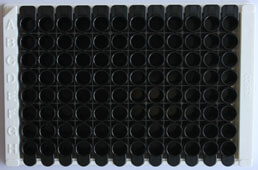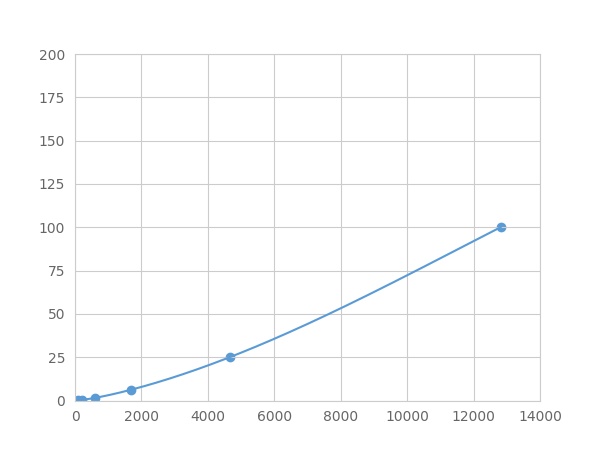Packages (Simulation)

Reagent Preparation

Image (I)
Image (II)
Certificate


Multiplex Assay Kit for Serum Amyloid P Component (SAP) ,etc. by FLIA (Flow Luminescence Immunoassay)
APCS; PTX2; Pentaxin-Related; 9.5S Alpha-1-Glycoprotein
(Note: Up to 8-plex in one testing reaction)
- Product No.LMB539Hu
- Organism SpeciesHomo sapiens (Human) Same name, Different species.
- Sample TypeSerum, plasma, tissue homogenates and other biological fluids
- Test MethodDouble-antibody Sandwich
- Assay Length3.5h
- Detection Range0.1-100ng/mL
- SensitivityThe minimum detectable dose of this kit is typically less than 0.033 ng/mL.
- DownloadInstruction Manual
- UOM 8Plex 7Plex 6Plex 5Plex 4Plex 3Plex 2Plex1Plex
- FOB
US$ 415
US$ 431
US$ 455
US$ 487
US$ 519
US$ 567
US$ 638
US$ 798
Add to Price Calculator
Result
For more details, please contact local distributors!
Specificity
This assay has high sensitivity and excellent specificity for detection of Serum Amyloid P Component (SAP) ,etc. by FLIA (Flow Luminescence Immunoassay).
No significant cross-reactivity or interference between Serum Amyloid P Component (SAP) ,etc. by FLIA (Flow Luminescence Immunoassay) and analogues was observed.
Recovery
Matrices listed below were spiked with certain level of recombinant Serum Amyloid P Component (SAP) ,etc. by FLIA (Flow Luminescence Immunoassay) and the recovery rates were calculated by comparing the measured value to the expected amount of Serum Amyloid P Component (SAP) ,etc. by FLIA (Flow Luminescence Immunoassay) in samples.
| Matrix | Recovery range (%) | Average(%) |
| serum(n=5) | 97-105 | 101 |
| EDTA plasma(n=5) | 93-101 | 97 |
| heparin plasma(n=5) | 80-95 | 84 |
| sodium citrate plasma(n=5) | 90-102 | 97 |
Precision
Intra-assay Precision (Precision within an assay): 3 samples with low, middle and high level Serum Amyloid P Component (SAP) ,etc. by FLIA (Flow Luminescence Immunoassay) were tested 20 times on one plate, respectively.
Inter-assay Precision (Precision between assays): 3 samples with low, middle and high level Serum Amyloid P Component (SAP) ,etc. by FLIA (Flow Luminescence Immunoassay) were tested on 3 different plates, 8 replicates in each plate.
CV(%) = SD/meanX100
Intra-Assay: CV<10%
Inter-Assay: CV<12%
Linearity
The linearity of the kit was assayed by testing samples spiked with appropriate concentration of Serum Amyloid P Component (SAP) ,etc. by FLIA (Flow Luminescence Immunoassay) and their serial dilutions. The results were demonstrated by the percentage of calculated concentration to the expected.
| Sample | 1:2 | 1:4 | 1:8 | 1:16 |
| serum(n=5) | 81-88% | 86-98% | 84-93% | 78-97% |
| EDTA plasma(n=5) | 94-102% | 93-104% | 83-93% | 81-94% |
| heparin plasma(n=5) | 95-104% | 80-92% | 96-103% | 89-97% |
| sodium citrate plasma(n=5) | 83-105% | 99-105% | 93-101% | 86-101% |
Stability
The stability of kit is determined by the loss rate of activity. The loss rate of this kit is less than 5% within the expiration date under appropriate storage condition.
To minimize extra influence on the performance, operation procedures and lab conditions, especially room temperature, air humidity, incubator temperature should be strictly controlled. It is also strongly suggested that the whole assay is performed by the same operator from the beginning to the end.
Reagents and materials provided
| Reagents | Quantity | Reagents | Quantity |
| 96-well plate | 1 | Plate sealer for 96 wells | 4 |
| Pre-Mixed Standard | 2 | Standard Diluent | 1×20mL |
| Pre-Mixed Magnetic beads (22#:SAP) | 1 | Analysis buffer | 1×20mL |
| Pre-Mixed Detection Reagent A | 1×120μL | Assay Diluent A | 1×12mL |
| Detection Reagent B (PE-SA) | 1×120μL | Assay Diluent B | 1×12mL |
| Sheath Fluid | 1×10mL | Wash Buffer (30 × concentrate) | 1×20mL |
| Instruction manual | 1 |
Assay procedure summary
1. Preparation of standards, reagents and samples before the experiment;
2. Add 100μL standard or sample to each well,
add 10μL magnetic beads, and incubate 90min at 37°C on shaker;
3. Remove liquid on magnetic frame, add 100μL prepared Detection Reagent A. Incubate 60min at 37°C on shaker;
4. Wash plate on magnetic frame for three times;
5. Add 100μL prepared Detection Reagent B, and incubate 30 min at 37°C on shaker;
6. Wash plate on magnetic frame for three times;
7. Add 100μL sheath solution, swirl for 2 minutes, read on the machine.
GIVEAWAYS
INCREMENT SERVICES
| Magazine | Citations |
| Journal of Vascular Surgery | Circulation levels of acute phase proteins in patients with Takayasu arteritis PubMed: 20100644 |
| Journal of Proteome Research | Combined Proteomic and Metabolomic Profiling of Serum Reveals Association of the Complement System with Obesity and Identifies Novel Markers of Body Fat Mass Changes ACS: pr2005555 |
| Liver International | Identification of candidate biomarkers for hepatocellular carcinoma in plasma of HCV-infected cirrhotic patients by 3-D DIGE Pubmed: 23944848 |
| Journal of Proteome Research | Targeted proteomics predict a sustained complete-response after transarterial chemoembolization and clinical outcomes in patients with hepatocellular carcinoma: a prospective cohort study pubmed:28112944 |
| American Journal of Reproductive Immunology | Amniotic fluid pentraxins: Potential early markers for identifying intra‐amniotic inflammatory complications in preterm pre‐labor rupture of membranes pubmed:29193454 |
| Theranostics | Serum amyloid P component therapeutically attenuates atherosclerosis in mice via its effects on macrophages Pubmed:29930724 |
| J Med Primatol | Proteopathic lesions in the brain of a super©\aged chimpanzee (Pan troglodytes) 34096618 |
| Clinical and Experimental Immunology | Clinical significance of differential serum-signatures for early prediction of severe dengue among Eastern Indian patients Pubmed:35348620 |





